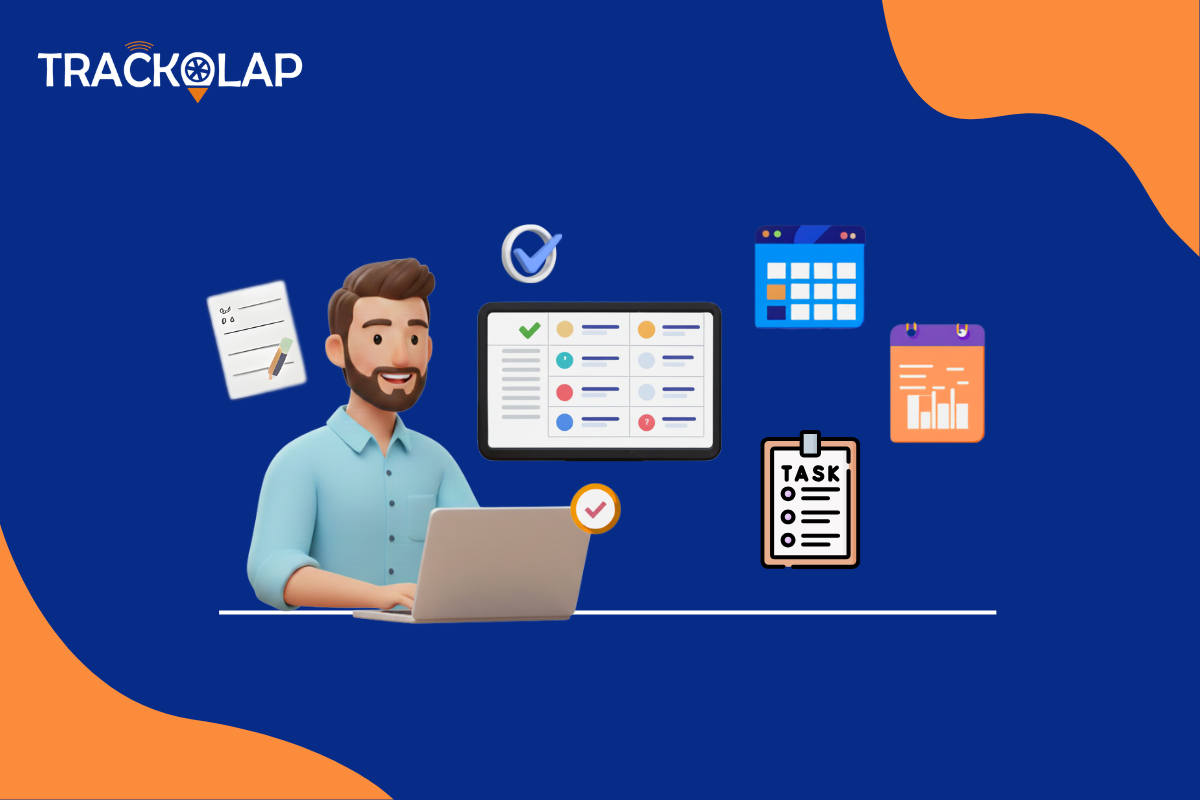
How to Work Remotely and Securely? 6 Tips for Creating Secure Remote Work Environment
In the last few months, you have learned how to run remote offices perfectly, and you have even gained more productivity and efficiency in the process. Since you have taken your business completely online - from managing employees to customers, you are doing everything digitally. Getting online is good, but you can’t ignore the dark truth that dark corners of the internet are flooded with hackers and viruses. All these digital dark forces are also in full action, and that’s a warning for you.
Why Do I Need to Focus on Security?
You must be wondering that you have already spent so much time understanding how to work remotely as a team, now why do I worry about security.
Now, people, if you don’t want a hacker to steal your confidential business and clients' information, you have to focus on remote security because there's a hacker attack every 39 seconds. So, you never know when you will become the next cyberattack victim. Furthermore, in the remote work environment, you are even more vulnerable because -
Your employees aren’t cautious - Nowadays, your employees are working from their homes using their personal laptops and computers. So, if they open any wrong website or share business information on any third-party app, you will be at risk.
Your IT department has limited power - When you are running a physical office, your IT department has a stronghold over what’s incoming and outcoming data. But, now your IT department can’t monitor minute activities of your remote employees, which has given entryway to hackers and cybercriminals.
SMBs are soft targets - Big corporate houses have adequate resources and tools to enhance remote work security; thus, hackers won’t attack them. On the contrary, 64% of small companies have experienced web-based attacks, and 62% experienced phishing and social engineering attacks.
That means if you are a small business trying to manage your operations remotely, you are on the radar of hackers. And, you need to quickly find a method to secure yourself.
Tips For Working Remotely and Securely
SMBs, you might have limited resources, and due to the pandemic, you don’t even have those resources to run your daily operations. So, in this, you can’t afford a cyberattack - your business can’t simply survive after that.
On the top, do you know the global average cost of a data breach is $3.9 million across SMBs?
When you read all these facts and figures, it might give you early grey hair or some sleepless nights. But, you should not worry as you can easily build a secure remote work environment by following the few tips for working remotely and securely.
Tip #1. Centralize your Operations
When you are using 100 different tools and apps to run your business operations remotely, you are giving numerous entryways to hackers.
Imagine you have one tool to record your employees' attendance, one for performance monitoring, and another for communication purposes. So, in a way, you have to share your employees' and customers’ data on three different portals. That means there three times more chances for cybercriminals to attack your business.
Now, if you don’t want to scatter your business information all over the internet, you have to use a centralized app or web dashboard from where you can stay connected with your employees. Additionally, when you have all the information in one place, you can streamline your remote better.
Tip #2. Go Over Cloud
If you have been using an on-premise security system to protect your data by far, you can’t use it any more simply because you don’t have your entire team under one roof. Since your team is globally scattered, so you have to go over the cloud.
We mean your employee efficiency and monitoring tool have to be cloud-based so that you can provide effective security solutions to your clients and employees. With the dedicated cloud server, you have a unique place on the internet that can’t be accessed by anyone except your permission.
You can allot usernames and passwords to your employees for login. Furthermore, you can limit the access as per the job role. For example, you can provide access to certain files and documents to an employee, which are required by him to complete the job. Thus, when limited people can access a company’s information, you can establish a better security shield.
Additionally, cloud software can be accessed from anywhere and anytime. It makes it effective for you to run your remote business operations properly and securely.
Tip #3. Get a Custom Tool
If you don’t want to rely upon anyone else to provide effective remote work security, you should get customized software prepared. Nowadays, plenty of different remote work management and monitoring software are available in the market. All the tools are great, but they come with their own security system.
For instance, if you are using WhatsApp to communicate with your team, you have to rely upon WhatsApp's security policy to protect the confidentiality of your data. And, if unfortunately, your third-party server got hacked, all your data can get into the wrong hands. The case of Hotmail is prominent here due to the company's poor security standards - many people have lost their data.
Thus, if you don’t want to rely upon other software and tools to provide an adequate security system, you should get your custom Remote Desktop monitoring system. This way, you can maintain high standards of security as per your requirements and stay away from the radar of hackers.
Tip #4. Develop Remote Work Policy
Earlier, when your employees were working from the office, they had to work under all bylaws and rules prepared by the management. Similarly, now when you are semi-permanently working remotely, you have to prepare a list of rules and regulations for your employees that will help them in maintaining a high level of security. The important things that you should mention in remote work policy are -
* You should not allow your employees to use personal devices to open work-related files or any other materials.
* Employees should not be allowed to download work-related content on their personal or any third-party devices.
* Prepare a structure on how employees can report cyberattacks to the IT department and much more.
If you are already using the employee efficiency and monitoring platform, you can upload all the remote work guidelines on it. So, that employee can refer to them - whenever they feel conflicted or confused. Especially if you are planning to make remote working a permanent thing, you have to set some ground rules.
Tip #5. Frequent Checking
If you have made a strict remote work policy to control the data breach and theft, you have to also ensure that whether your employees are following your rules or not.
Imagine you have prepared a list of websites that are highly risky and prohibited your employees from opening them on their work devices. Then, how will you make sure that your employees are following your orders?
It’s very simple with the dedicated employee monitoring portal. You just have to install employee monitoring software into every employee’s work devices. The software will automatically capture screenshots of employees' desk screens and frequently share them with you. And, if you find any employee breaching your orders, you can immediately take disciplinary action against him or her based on solid proof.
Additionally, the software can help you in understanding how much time your employees have spent on which website and application. If you find your employees spending more time on risky apps or websites from the security point of view, you can warn your employees regarding it.
Tip #6. Secure Communication
Through the dedicated dashboard, you can monitor the emails and phone calls of your employees and even record them. Nowadays, telecom frauds are as popular as cyber frauds.
Telecom hackers can call your employees and create a situation where your employees might share confidential business information like bank account details, etc. Thus, when you are monitoring emails and calls of your employees, you can protect them from falling into phishing traps. So, call and email recording can save you from losing millions of dollars.
Wrap Up
It doesn’t matter whether you have just started working remotely or have been working for years; you have to set a strong security system. Without the absence of remote work security standards, you are highly vulnerable, and you might lose your clients if they find out you are vulnerable. Thus, from training your employees to getting centralized software, you have to pan out a perfect remote work security system today!
To get advice on remote work security or customer remote desktop monitoring software, you can contact the TrackOlap team today!






























 Back to Blogs
Back to Blogs










 D-5 Sector-59, Noida, Uttar Pradesh (India)
D-5 Sector-59, Noida, Uttar Pradesh (India) contactus@trackolap.com
contactus@trackolap.com 7011494501
7011494501










